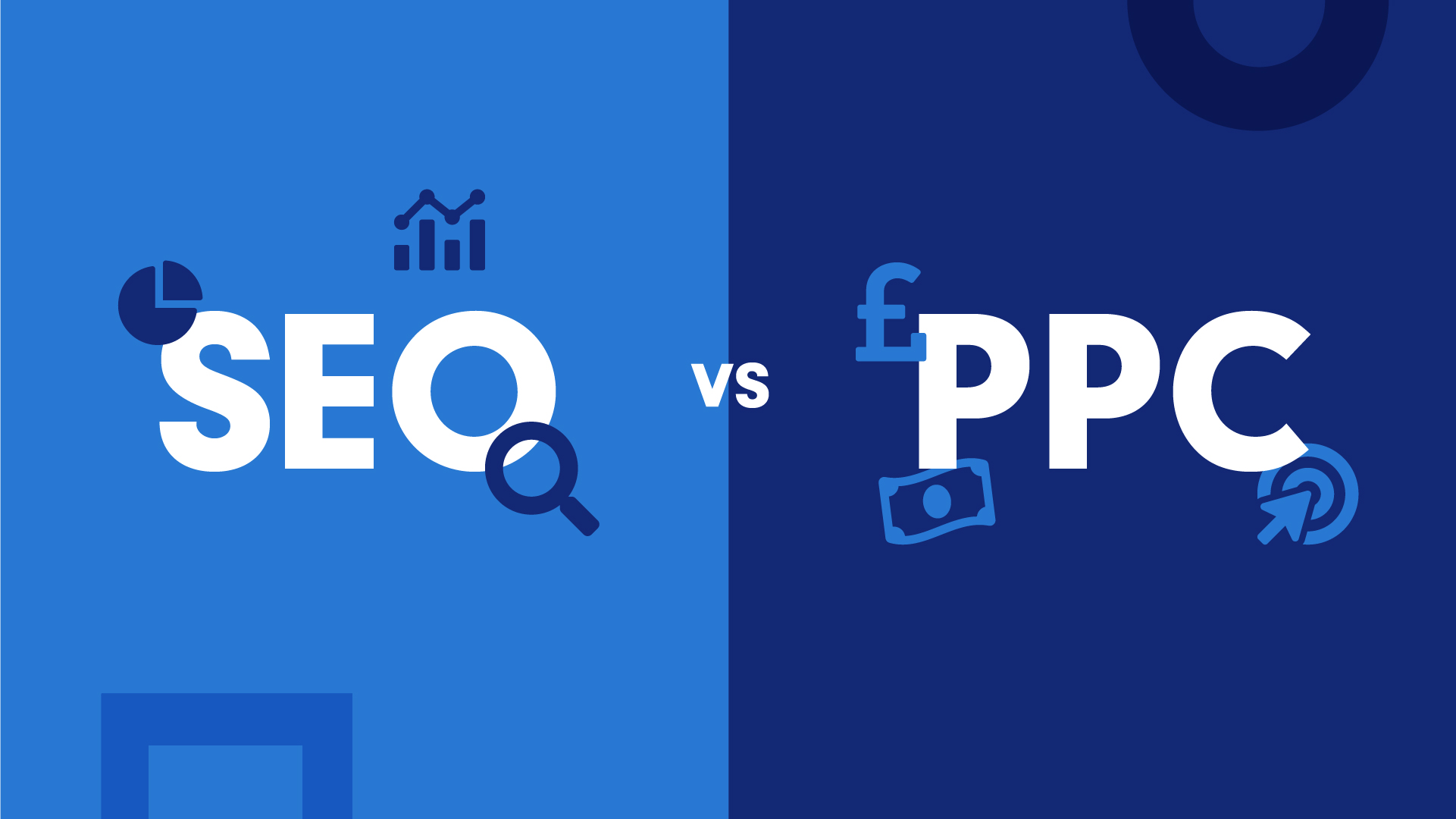What Are Search Terms in SEO and PPC?
- Introduction
- What Are Search Terms?
- Search Terms vs Keywords
- Why Search Terms Matter in SEO
- Why Search Terms Matter in PPC
- 5 Key Questions About Search Terms
- How to Analyze Search Terms Effectively
- Tools for Finding and Managing Search Terms
- How to Optimize Content and Ads Using Search Terms
- Search Terms in the Buyer’s Journey
- How Excell Uses Search Terms to Drive Conversions
- Conclusion & Call to Action
Introduction
When someone opens Google and types in a question like “best PPC agency near me” or “how to rank higher on search engines,” they’re using a search term. But what are search terms? And how do they differ from the keywords we often talk about in marketing?
In today’s highly competitive digital landscape, understanding the distinction between search terms and keywords is crucial for maximizing ROI in both SEO (Search Engine Optimization) and PPC (Pay-Per-Click) advertising. Whether you’re managing a content strategy or running a Google Ads campaign, tapping into real-world search terms is the secret to unlocking better user engagement, higher conversions, and smarter marketing decisions.
Let’s break it down in full detail.
What Are Search Terms?
Search terms are the exact phrases that users type into a search engine when looking for information, products, or services. Think of them as digital questions or needs. Every search term is a window into what the user wants at that moment.
For example:
- A user might type: “affordable wedding photographers in Austin.”
- That phrase is the search term.
- As a business, you might be targeting the broader keyword: “Austin wedding photographer.”
While the keyword gives you a general direction, the search term reveals the real-time, specific language that real people are using.
Characteristics of Search Terms:
- Reflect actual user intent
- Often, long-tail and specific
- Can include misspellings, brand names, or slang
- Constantly evolving
Search Terms vs Keywords
A common point of confusion in digital marketing is the difference between a keyword and a search term. While they are closely related, they are not the same and understanding the difference is crucial for executing effective SEO and PPC strategies.
Keywords are the phrases you, the marketer or advertiser, choose to target in your content or ad campaigns. They serve as an educated guess about what your target audience might be searching for. For example, you might decide to target the keyword “wedding photographer.”
Search terms, on the other hand, are the exact phrases users type into search engines. They reflect real user behavior and often reveal deeper levels of intent. For instance, someone might search for an “affordable wedding photographer in Austin.” That’s a search term a precise, user-generated query that carries more context and intent than your chosen keyword.

Another key distinction lies in how they are used. Keywords are used to set up campaigns or optimize content, while search terms are typically reviewed after the fact to evaluate performance. Keywords are proactive; search terms are reactive and revealing.
Understanding this difference can also help you fine-tune your ad targeting. Let’s say you bid on the keyword “plumber near me.” Your ad might end up showing a search term like “emergency plumber open now in Dallas.” If you’re not actively reviewing your search term reports, you might miss opportunities to optimize for better relevance, or worse; you could be paying for traffic that doesn’t convert.
In summary: keywords are what you aim for, but search terms are what happen in the real world of user behavior.
Why Search Terms Matter in SEO
Search terms play a crucial role in organic search engine optimization. Here’s how they influence your SEO strategy:
1. Content Relevance
By optimizing your content for actual search terms, you’re more likely to rank higher because Google aims to serve the most relevant and helpful content.
2. Improved Keyword Targeting
Sometimes, your chosen keywords may be too broad or competitive. Analyzing search terms helps you discover long-tail variations that are easier to rank for and more specific to the user’s intent.
3. Better CTR and Engagement
When your titles and meta descriptions accurately reflect actual search terms, users perceive your content as precisely what they need, resulting in higher click-through rates and longer dwell times.
4. Voice Search Alignment
Why Search Terms Matter in PPC
In Google Ads and other paid search platforms, search terms dictate ad performance in ways that keywords alone cannot.
1. Reveal True Intent
Users might click on your ad due to match types (broad, phrase, exact), but without analyzing search term reports, you won’t know if those clicks were truly relevant.
2. Optimize Ad Spend

Search terms help identify:
- Wasted spending from irrelevant queries
- High-converting terms worth targeting more aggressively
3. Create Effective Negative Keywords
One of the best uses of search terms is identifying negative keyword phrases for which you do not want your ads to appear.
4. Improve Quality Score
5 Key Questions About Search Terms
Let’s tackle some frequently asked questions to clarify further what search terms are and how they function in SEO and PPC.
1. What Are Search Terms in Digital Marketing?
They’re the exact phrases users enter into search engines, reflecting their intent at a specific moment in time. These differ from your keywords, which are assumptions about what users might search for.
2. How Can I See Which Search Terms Brought Traffic?
- SEO: Use Google Search Console > Performance Report
- PPC: Use Google Ads > Keywords > Search Terms
- Both platforms offer data like impressions, CTR, conversions, and average position.
3. Why Don’t All Search Terms Show in Google Search Console?
Due to privacy concerns, Google withholds some data (e.g., low-volume queries or PII-based searches). That’s why pairing GSC with tools like Ahrefs or SEMrush helps fill in the gaps.
4. Should I Create Content for Every Search Term?
Not necessarily. Focus on grouping related terms into topics or clusters and building in-depth, high-value pages around them.
5. What Are Long-Tail Search Terms?
How to Analyze Search Terms Effectively
Search term analysis involves more than reviewing a list. It’s about interpreting intent, performance, and opportunities.
For SEO:
- Go to Google Search Console → Performance
- Filter by page or query
- Sort by impressions and CTR
- Identify terms with low CTR and high impressions → optimize meta tags
- Google Ads → Keywords → Search Terms
- Sort by conversions or cost per conversion
- Add performing terms as exact match keywords
- Flag irrelevant or costly terms as negatives
Tools for Finding and Managing Search Terms
To truly master what search terms are and how to use them, leverage tools that reveal both paid and organic insights.
SEO Tools:
- Google Search Console
- SEMrush
- Ahrefs
- Ubersuggest
- AnswerThePublic
- Google Ads Search Term Report
- Google Ads Keyword Planner
- SpyFu
- Optmyzr
- Keyword Hero (bridges GSC with GA)
How to Optimize Content and Ads Using Search Terms
Understanding what search terms your audience uses is only half the battle. The real value lies in applying that knowledge to enhance your website content, landing pages, and paid advertising. Below are five strategic ways to optimize your digital presence using actual search term data.
1. Update Meta Titles and Descriptions
Meta titles and descriptions are the first things users see in search engine results and they significantly influence whether someone clicks on your link.

If you find that a particular search term is driving a high number of impressions but a low click-through rate (CTR), it may be a sign that your current title and description don’t resonate with the user’s intent. In this case, revise them to reflect the phrasing of the search term more closely. This could include using specific language, question formats, or even emotional triggers that match what users are searching for.
Example:
If users frequently search for “best affordable SEO tools” and your title reads “Top SEO Platforms for 2025,” you might improve CTR by updating it to “Best Affordable SEO Tools for Small Businesses in 2025.”
Fine-tuning your metadata based on real search terms not only improves visibility but also entices more qualified users to click.
2. Use Headers Wisely
Search engines analyze headings (like H2s and H3s) to understand the structure and relevance of your content. Including search terms in these headers helps reinforce context for both users and algorithms.
When crafting your headers:
- Integrate long-tail search terms where appropriate.
- Use question-based headers that mirror how people search.
- Make your headings clear and descriptive rather than vague or generic.
Instead of using a header like “Tools Overview,” use “Top Free SEO Tools for Beginners in 2025,” a phrase that might match an actual search term.
This approach not only enhances your on-page SEO but also makes your content more scannable and user-friendly.
3. Create FAQ Sections
Many search terms come in the form of questions especially with the rise of voice search and conversational AI tools. Adding a Frequently Asked Questions (FAQ) section allows you to directly address these queries while increasing your chances of appearing in featured snippets or People Also Ask boxes on Google.
To make this work:
- Use real search term data to identify common questions that people ask.
- Phrase the FAQ items in natural language, as users would ask them.
- Provide concise, helpful answers directly under each question.
A: Search terms are the actual words or phrases users type into search engines. They help marketers understand what their audience is looking for.
Embedding structured FAQs using schema markup can also enhance your site’s rich snippet visibility, drawing more attention to your search listing.
4. Refine Ad Copy
In paid search campaigns, such as Google Ads, your ad copy should reflect the exact search terms that lead to high conversions. When a user sees their language echoed in your headline or description, it creates a sense of relevance and trust.
Here’s how to apply it:
- Review your Search Terms Report regularly to find high-performing queries.
- Update your ad headlines and descriptions to mirror those phrases.
- Include numbers, emotional triggers, or urgency when appropriate.
“Fast Same-Day AC Repair Local Technicians Available Now”
This increases both Quality Score and CTR, which lowers your cost per click and improves ad placement.
5. Build Dedicated Landing Pages
Not all search terms can be effectively served with generic or multipurpose pages. For high-intent or high-volume search terms, consider building dedicated landing pages that directly match the query.
These pages should:
- Reflect the search term in the headline and body copy
- Answer specific questions or pain points
- Feature a clear, relevant CTA (call to action)
- Be optimized for conversions, with trust signals and user-friendly design
If “PPC management services for real estate agents” is a recurring high-converting search term, build a landing page titled exactly that. Customize the content and CTA to address real estate professionals directly.
Landing pages aligned with user search intent often see higher engagement, lower bounce rates, and more conversions especially in PPC campaigns where every click costs money.
Search Terms in the Buyer’s Journey
Search terms evolve depending on where a user is within the buyer’s journey the path a customer takes from discovering a problem to making a purchase. Understanding these shifts in language and intent can help you create content and campaigns that resonate with every audience at every stage.
In the Awareness stage, users are just beginning to understand their needs. Their search terms tend to be broad and informational in nature. For example, someone might type “What are SEO tools” as they start exploring how to improve their website’s visibility. At this point, blog posts and explainer videos are ideal for educating the user without a hard sell.
As they move into the Consideration stage, search terms become more specific and comparative. A user may search for “best SEO tools for small business,” indicating that they’re evaluating different options. This is your opportunity to provide comparison guides, expert reviews, and case studies that highlight key features and benefits.
By the time they reach the Decision stage, users are ready to take action. Their search terms reflect purchase intent, such as “buy Ahrefs subscription discount” or “sign up for Moz Pro.” At this point, your product pages, pricing information, and special offers should be prominently featured to close the deal.
Recognizing the types of search terms that correspond to each phase helps you align your content and advertising strategies with user intent, ultimately increasing engagement and conversions.
How Excell Uses Search Terms to Drive Conversions
At Excell, we don’t just guess what your customers are looking for. We uncover the search terms that matter most to your business and build strategies around them.
Here’s How:
- 🔍 We audit your search term data from both SEO and PPC channels.
- ✍️ We create or update your content to match real-world queries.
- 💰 We improve ad performance by matching copy to high-converting terms.
- ❌ We eliminate wasted ad spending with robust negative keyword strategies.
- 📊 We continuously test and optimize, ensuring you’re ahead of trends.
Conclusion & Call to Action

🚀 Ready to transform your marketing with the power of search terms?
📞 Contact us today and Book your free discovery call to get done for your services!
We are Excell where precision meets performance.
Contact us:
6420 Richmond Ave., Ste 470
Houston, TX, USA
Phone: +1 832-850-4292
Email: info@excellofficial.com







